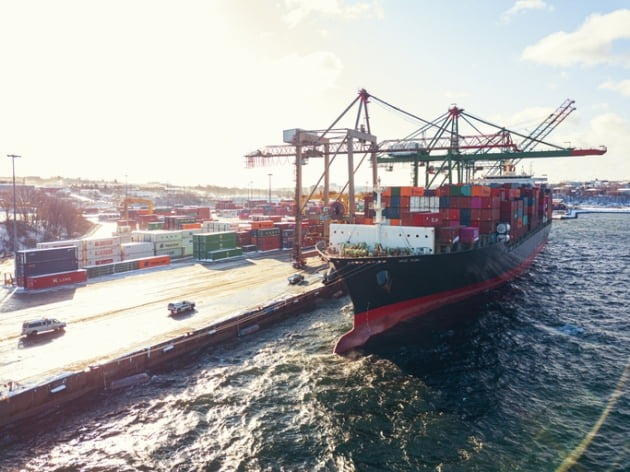South Korea’s shipbuilding expected to lead manufacturing sectors in export growth

South Korea’s shipbuilding exports this year are expected to jump 76.1% from last year to $32.4 billion to lead all major manufacturing industries in the category.
Forecasts predict a big year for the country’s three biggest shipbuilders, which have landed orders for high value-added ships such as liquefied natural gas (LNG) carriers.
The government-run Korea Development Bank (KDB) on Wednesday in a report on this year’s industrial prospects said ship exports will reach an estimated $32.4 billion, or 76.1% or $18.4 billion more than last year. A KDB source said, “The export amount will see major growth due to the base effect from last year’s decline in construction volume and rising prices for new vessels.”
Shipbuilding is also expected to lead export growth among the nine major manufacturing sectors including steel, cars, general machinery, petrochemicals, semiconductors, displays and mobile phones. Shipments of steel are expected to grow just 2.8% and cars 2.1% due to sluggish demand, while those of petrochemicals will inch up just 0.8%, a huge drop from 5.4% last year.
The KDB report added that exports of semiconductors will fall 9.8% and those of displays 13.7%.
The Korea International Trade Association (KITA) also named shipbuilding as the only major manufacturing sector to see an extended export boom. KITA uses its export business survey index (EBSI) to gauge the perception of economic conditions of exporting companies, with a base score of 100. A figure of under 100 means more companies are pessimistic over business prospects than those that are optimistic.
The EBSI for all industries in this year’s first quarter reached 81.8, but shipbuilding’s was 146.5, foreshadowing lucrative prospects in all categories of the sector like export unit price, international logistics, manufacturing cost and export profitability.
The industries with the bleakest prospects were petroleum product exports with an EBSI of 55.7 and home appliances with 49.7 due to falling international oil prices and inflation. Cars and automotive parts and components scored 99, thus they are expected to maintain similar business from last year’s fourth quarter thanks to higher demand for electric vehicles and improvements in logistics problems.



